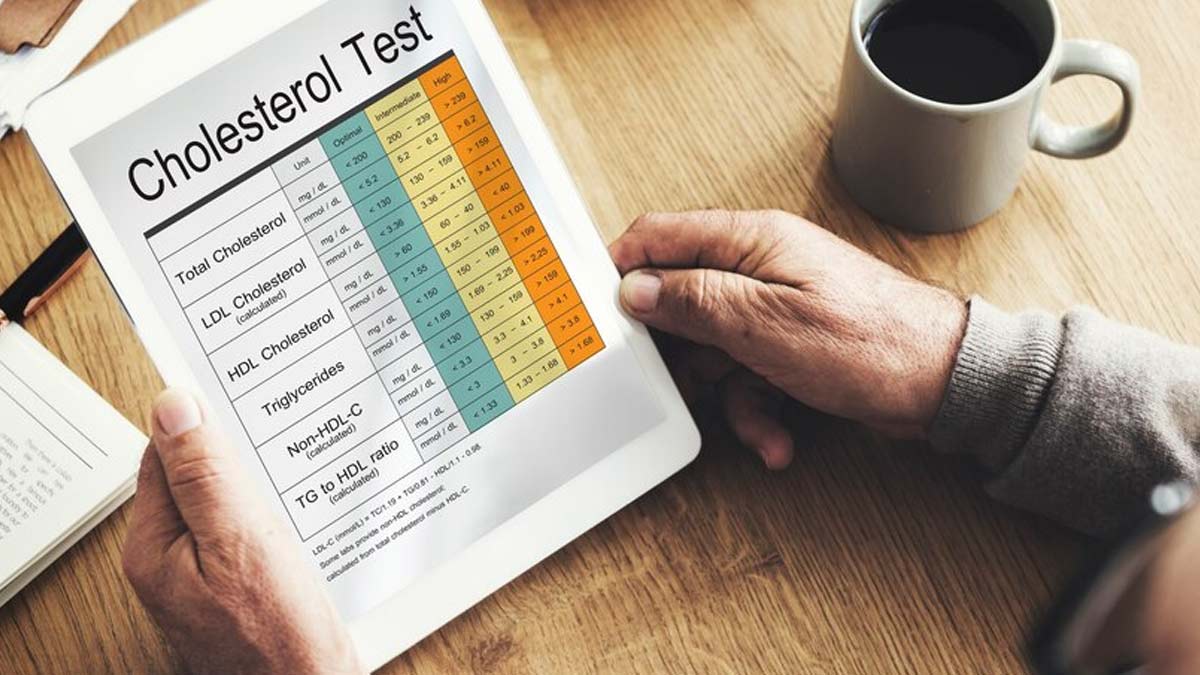
When it comes to lowering cholesterol levels, food choices matter a lot. It is neither advisable to pick foods that contain high amounts of cholesterol nor is it wise to cut out cholesterol completely. There are two main types of cholesterol: Low-Density Lipoprotein (LDL) cholesterol, which can contribute to the buildup of plaque in the arteries, and High-Density Lipoprotein (HDL) cholesterol, which helps remove excess cholesterol from the bloodstream, which is actually good for your heart. Therefore, while you may limit your LDL or 'bad' cholesterol intake, it is important to continue having foods rich in HDL or 'good' cholesterol.
Table of Content:-
So again, your food choices matter when it comes to reducing unhealthy cholesterol levels. Speaking with the OnlyMyHealth team, Dr Bhupesh R. Shah, Senior Interventional Cardiologist, HCG Hospitals, Ahmedabad, said, "It is essential to limit the consumption of saturated and trans fats while incorporating plenty of fruits, vegetables, and whole grains into our daily meals."
But apart from that, it is also important to know about the food alternatives that can help limit bad cholesterol intake. Here is a list of healthy foods that are high in HDL cholesterol and may help reduce the risk of heart disease.
Also Read: THIS Cholesterol Symptom Could Strike At Night: Other Warning Signs To Note
Olive Oil

If you have high cholesterol and are at risk of developing a heart disease, it is best to avoid cooking oils that are high in trans fat, which raise your LDL cholesterol levels and lower your HDL cholesterol levels. Instead, it is recommended to use oils like olive oil that contain monounsaturated and polyunsaturated fats. They help raise good cholesterol and limit bad cholesterol buildup in the body.
In an analysis published in Critical Reviews in Food Science and Nutrition, researchers found that cooking with olive oil lowered total cholesterol, LDL, and triglycerides and increased HDL cholesterol more than other plant oils.
Whole Grains
Whole grains are considered one of the healthiest sources of fibre. From bran, cereals to brown rice, you have a variety to choose from. In addition, for those who want to lower cholesterol and improve their HDL cholesterol, whole grains are a healthy alternative to refined grains, which are low on nutrients and are harmful for your heart.
According to a study published in the Journal of Nutrition, whole grain consumption is associated with increased HDL cholesterol and reduced risk of Cardiovascular Disease (CVDs), particularly in middle- to older-aged adults.
Fatty Fish

It's always good to get your daily protein requirement. But rather than choosing meat items, such as lamb, beef, or pork, which contain high amounts of saturated fat, choose fatty fishes, like salmon, trout, and tuna, which are all good sources of omega-3 fatty acids. Omega-3 fatty acids are healthy fats that lower LDL cholesterol levels and promote heart health.
As per a study published in the Journal JAMA Network, people who had fish 1-3 times per month, once per week, 2-4 times per week, and more than 5 times per week had a 21%, 29%, 31%, and 34% reduced risk of Coronary Heart Disease (CHD) death, respectively, in comparison with those who consumed no fish.
Also Read: Signs In Your Legs You Shouldn't Ignore: High cholesterol and Peripheral Artery Disease
Nuts And Seeds
Other great sources of omega-3 fatty acids are nuts and seeds, including walnuts, almonds, chia seeds, flaxseeds, and more, all of which are healthy for the heart.
A meta-analysis published in the American Journal of Clinical Nutrition found that including walnuts to the diet 'improved blood lipid profile without adversely affecting body weight or blood pressure', meaning a walnut-rich diet helped lower LDL cholesterol and improved heart health.
Avocado
Higher avocado intake was associated with a 16% lower risk of CVD and a 21% lower risk of CHD, according to a study published in the Journal of the American Heart Association (JAHA). Packed with heart-healthy monounsaturated fats, loaded with fibre, vitamins, and minerals, avocado is known to lower bad cholesterol levels. Additionally, all these nutrients also help maintain overall health and wellness.
Also watch this video
How we keep this article up to date:
We work with experts and keep a close eye on the latest in health and wellness. Whenever there is a new research or helpful information, we update our articles with accurate and useful advice.
Current Version
